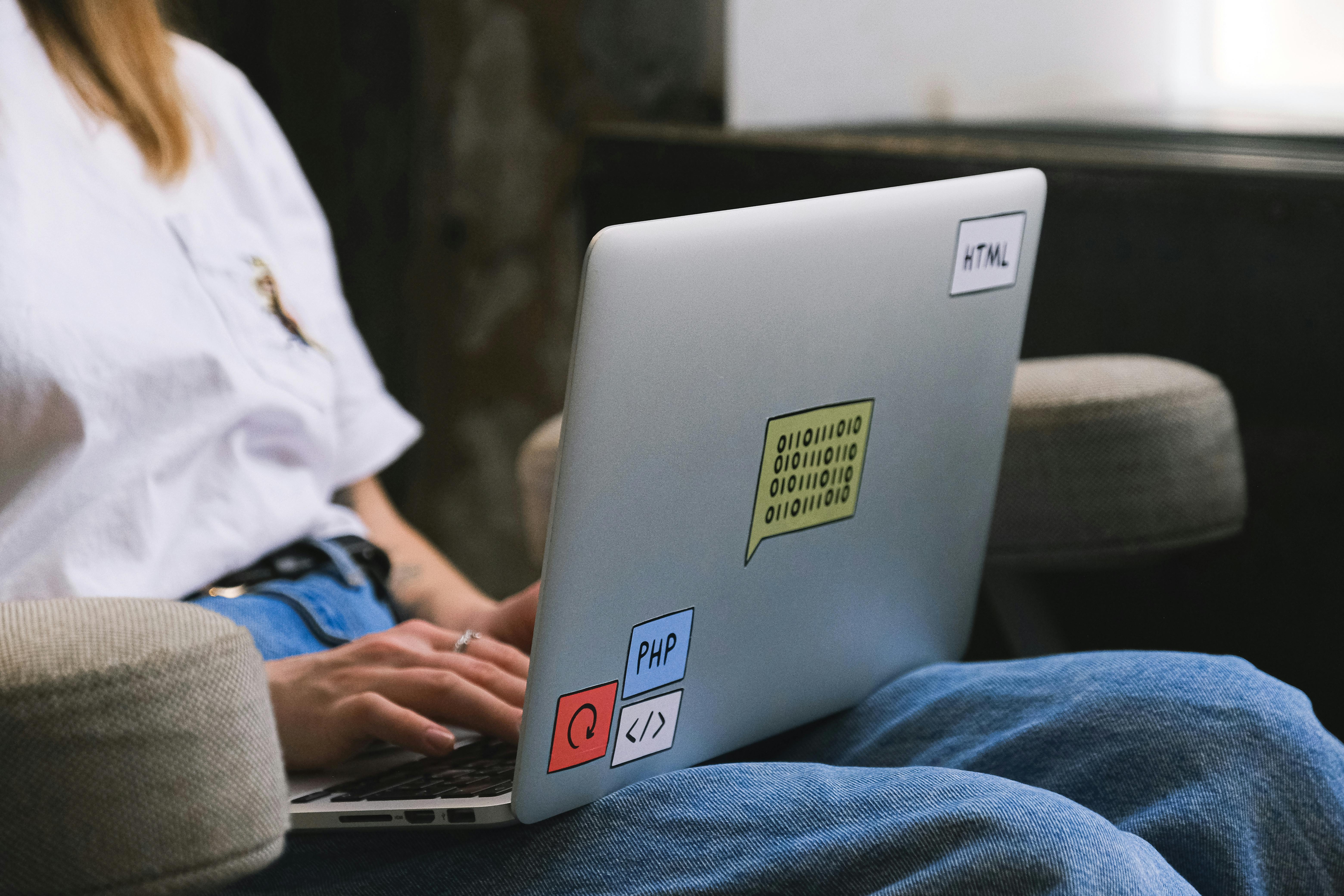AI-Powered Accounting for Freelancers in France: Tools & Strategies
Back when I took my first freelance project in France, AI-powered accounting wasn’t even a blip on the radar—let alone a lifeline. These days? The game has changed radically. More solo professionals are ditching late-night spreadsheet marathons for algorithms that reconcile, categorize, and even file taxes on your behalf. But if you’re in France, you already know: this is not just a question of downloading the latest app and letting it rip. Working here—juggling URSSAF declarations, navigating TVA (VAT) thresholds, and dancing around “micro-entreprise” or “auto-entrepreneur” rules—brings its own flavor of bureaucratic excitement. Now add AI into the mix. Does automating your accounting in France actually work? Is it legal? Does it save time, money, sanity? Let’s not mince words—there are pitfalls, but also massive upsides if you do it right.
In my own journey as a freelance content strategist—endlessly sending devis (quotes), wrangling French clients over invoice formats, sweating the annual BNC limits—I’ve made plenty of mistakes (more than I’d care to admit). I’ve also landed on systems that let me focus on client work and creativity, not data entry. This guide distills those lessons, demystifies the regulatory context, and gives you the unvarnished truth about AI-powered accounting for freelancers in France. If you’re looking to automate, optimize, and keep the French authorities satisfied—all without losing your mind—you’re in the right place.
Why Use AI Accounting as a Freelancer in France?
Let’s get real—doing the books yourself in France is like voluntarily translating Proust for fun, especially if French isn’t your mother tongue or you’re not trained in local accounting lingo. The “auto-entrepreneur” regime was supposed to simplify things, but between URSSAF declarations, quarterly tax pre-payments, and ever-changing rules around TVA, things still get hairy. That’s where AI steps in.
- Time savings: Automation can shave hours off monthly admin, especially for recurring invoices, bank reconciliation, and expense tracking.
- Compliance: AI tools are becoming adept at tailoring outputs to French regulatory standards—dynamic TVA calculations, BIC/BNC categorization, URSSAF reminders, and more2.
- Accuracy: Goodbye fat-finger errors; AI can catch duplicates, flag anomalies, and suggest corrections, reducing audit risk.
- Stress reduction: Not to be underestimated. AI-based notifications, automatic templates, and digital archiving free up cognitive bandwidth.
“The best AI accounting tools don’t just automate busywork—they let solo professionals in France focus on what they love, while staying safely inside the lines of a complicated system.”
In my early months in Paris, I tried to “just keep receipts and organize at tax time”—classic mistake. Fast forward to last year: an AI tool flagged four underreported invoices just days before my URSSAF quarterly declaration. Would I have caught them? Maybe—if I’d spent hours double-checking line by line. Instead, a digital assistant spotted the gap, reminded me to check, and I avoided a hefty fine.
France’s “micro-entrepreneur” regime is one of the most popular for freelancers, but if you accidentally pass the annual revenue cap (€77,700 in services for 2024), you must apply VAT retroactively. AI-powered accounting tools with real-time alerts can prevent this costly mistake—and have saved more than a few of us from expensive surprises.
Of course, it’s not magic. Getting real value from AI means two things: picking the right tool and configuring it for the French landscape. You can’t just grab the first U.S. SaaS invoice generator or generic expense app. It’s all about localization, legal compliance, and pragmatic workflow hacks learned the hard way.
Core Features Every AI Accounting Tool Needs in France
What strikes me most, honestly, is how many global AI tools completely miss the mark for French freelancers. You need way more than “scan your receipts” or “auto-generate invoices.” Here’s the non-negotiable feature list—drawn from my own misfires, plus advice from French accountants 3 and peers across multiple freelance sectors.
- Automated URSSAF-ready income calculation and reminders
- Dynamic VAT (TVA) management: Real-time thresholds, retroactive application, customizable rates for services vs. goods
- Invoice compliance: French-compliant templates, digital signatures, repetitive invoice (facture récurrente) scheduling
- Bank sync with French banks (Crédit Agricole, BNP Paribas, La Banque Postale, etc.)
- Secure document archiving for up to 10 years—as required by French law
Anything less? You’ll find yourself patching gaps manually, which defeats the purpose. Next up: how to actually choose a solution, avoid the biggest rookie mistakes, and future-proof your freelance finances in France.
How to Choose the Right AI-Powered Accounting Solution (and Avoid Common Pitfalls)
Here’s where things get interesting. It’s tempting to just Google “best accounting app” or grab what your friend uses—but honestly, what works for a California-based copywriter may trip every compliance wire in Marseille. Speaking with local experts and testing these tools myself, I’ve learned to prioritize three core factors: French law compatibility, automation depth, and support in real-world scenarios.
- Local Compliance: Tools must match France’s digital invoice and data retention requirements. For example, under Loi de Finances 2020, all invoicing software must archive documents for 10 years, timestamp changes, and prevent unauthorized deletions4.
- Seamless French Banking Integration: Direct sync with major French banks is a must—many U.S. and UK platforms simply don’t play nice with “RIB” (French IBANs) or Carte Bancaire feeds. Test this in your free trial period!
- Real AI (not fake AI): Look for true machine learning—automated suggesting of expense categories, detection of missing invoices, fraud flagging—not just simple “if/then” rules. Real AI learns from your behavior over time.
“French freelancers who rely on generic accounting tools risk everything from misfiled VAT to rejected invoices—and angry clients. The best AI-powered solutions are those designed with our laws, not just translated.”
Actually, let me clarify—features alone don’t guarantee a fit. One tool might ace VAT but miss URSSAF options. Another could do gorgeous invoices but fumble year-end reports. Over time, I’ve developed real skepticism (the good kind) about app marketing. My method? Build a test “sandbox company” with dummy data and try:
- Entering an international client payment (test currency handling and VAT adaptation)
- Changing freelance status from “micro-entrepreneur” to “EURL” (see how flexible the software is)
- Simulating an URSSAF audit request—can you export everything in a format the French authorities expect?
France is actively rolling out the Factur-X e-invoicing standard: a hybrid digital invoice that combines human-readable PDF and machine-readable XML5. By 2026, all B2B invoices in France will need to comply. Advanced AI tools already integrate this to future-proof your freelance business.
Quick Comparison: Top AI-Powered Accounting Tools for France
| Tool | Best For | AI Features | French Compliance? |
|---|---|---|---|
| Freebe | Micro-entrepreneurs, URSSAF automation | Real-time alerts, auto-categorization, AI invoice matching | Yes (URSSAF, TVA, Factur-X-ready) |
| Indy | Professionals, liberal professions, BNC | Automatic bank sync, expense suggestions, real-time tax estimation | Yes (BNC, TVA, secure archiving) |
| QuickBooks France | Multi-currency, complex projects | Receipt scanning, invoice prediction, anomaly detection | Partial (some export gaps) |
| Sage France Cloud | Growing micro-businesses, scalable needs | AI expense analysis, VAT reminders, payroll options | Yes (advanced, for larger freelancers) |
I’ll be completely honest—my first year, I assumed “more features” meant “better.” Not true. The right tool is the one you’ll actually use every single month—and that doesn’t break when France updates its digital rules in March (it always does). That’s a subtle but massive difference I’ve learned the hard way.
Don’t let fancy AI dashboards distract you: prioritize tools with built-in support, live chat in French, and transparent “what happens if” guides. The real test of a good AI accounting solution? Not how it handles perfect conditions, but how it helps you clean up when you inevitably make a mistake.
Practical Steps to Set Up Your AI-Powered Accounting (with Real French Context)
Having chosen your tool, don’t skip the foundation steps. Every year, I see freelancers abandon great apps because they never configured thresholds, categories, or bank syncs correctly, then blamed the “AI.” Here’s my set-up checklist:
- Enter accurate opening balances. If you’re migrating from spreadsheets or another app, triple-check your revenue, expenses, and VAT balances for the current fiscal year. AI will only learn from clean data.
- Connect your main and secondary French bank accounts. Test the sync with real imports—sometimes “100% automatic” really means “manually upload CSV every month,” which is a warning sign.
- Define your revenue categories according to French tax regime. (BIC, BNC, micro-BNC, etc.) Don’t just accept the default—in my experience, this single step reduces statement errors by half.
- Activate email or SMS notifications. Set reminders for quarterly URSSAF, annual TVA, and threshold warnings.
- “Dummy run” an invoice, declaration, and VAT report. Actually generate them before you need them for real—trust me, this step is a lifesaver.
One last practical tip I’ve only reckoned with recently: back up your exported data quarterly, not just annually. The best AI tools still make mistakes, and with French law requiring document retention up to 10 years, losing access is a nightmare.

Navigating French Compliance: What AI Can—and Can’t—Automate
Here’s where the hype meets the reality check. “AI automation” sounds all-powerful, but France’s tax system has plenty of tripwires. I’ve found there are three zones:
- Tasks AI can automate safely and legally: Digital invoice generation, expense matching, categorized bank imports, automated reminders, and even BNC/BIC calculation for micro-entrepreneurs can be fully automated under today’s rules6.
- Tasks AI can help with (but you must review): VAT (TVA) assignment, annual threshold monitoring, electronic archiving, and some URSSAF reporting. Here, you want an AI tool with clear exports and human cross-checks. The French tax authorities are unforgiving about errors.
- Tasks AI cannot automate (yet): Fiscal regime switching, nuanced deductions, medical professions’ specialized forms, exceptional one-off subsidies, and most complex “régime réel simplifié” declarations still need a real accountant’s input7.
Ever notice how, just when you’re feeling organized, some regulation changes overnight? Sound familiar? Earlier this year, France updated the TVA reverse charge rules for freelancers with EU corporate clients. My AI auto-filer (and two others, it turns out) didn’t flag it. The result? I had to manually correct three returns. Point is, staying in control means using AI as assistant, not overlord.
“AI-powered accounting reduced my quarterly paperwork, but as soon as something changed—like the TVA rules this spring—I still needed to double-check everything manually. The combo of automation plus human oversight is unbeatable for staying on the right side of French compliance.”
People Also Ask: Common Questions About AI Accounting in France
- Is it legal to use AI tools for accounting in France? Yes, as long as the tool is “anti-fraud” certified and meets French data retention and e-invoicing standards8.
- Can AI tools replace my expert-comptable? In most micro-entrepreneur cases, almost—but complex scenarios or fiscal control procedures still require a professional.
- Will AI automatically declare my taxes? So far, most solutions only prepare the declaration and may offer direct online submission, but users must double-check before official validation.
- What’s the best AI accounting software for French freelancers? In 2025, Indy and Freebe topped the list for ease of use, robust legal compliance, and adaptive AI—but always review for your specific sector and check for updates.
- How can AI help avoid VAT threshold issues? Modern platforms have built-in alerts and real-time tracking that flag you as soon as you approach the French cap, helping you adapt proactively9.
Under French law, “dematerialization” requirements mean even scanned digital receipts must meet strict authenticity and traceability conditions. AI-powered archiving that timestamps every upload and change log is not just useful—it’s legally required if you want to survive a tax audit.
Troubleshooting & Staying in Control: When AI Goes Wrong
I’m not entirely convinced “set it and forget it” will ever work in French freelance accounting. Here’s what trips most of us up:
- Automated categorization mistakes (AI guessing an expense is “personal” when it’s a deductible business meal—classic blunder)
- Bank feeds breaking (French banks occasionally “update security”—suddenly, nothing syncs for a week)
- Missed compliance updates (AI modules might lag behind a new regulation, especially for industry-specific cases—professional photography, consulting, etc.)
- Language glitches (English-written tools mistranslate categories, or fail on French special characters— ç, é, à)
- Spot-check a handful of categorized expenses and VAT entries every month
- Validate bank sync at the start of every fiscal quarter
- Update your software whenever prompted, ideally before crunch time (deadline week = bugs galore)
- If things break, always download raw data and export backups before reinstalling or switching providers
“The most successful freelancers I know in France use AI tools as co-pilots, not pilots. They let the AI handle routine admin, but always keep a human hand on the controls—especially around tax time.”
Expert Insights, Final Thoughts & References
Looking back on the last few years, the single smartest move I made was to blend AI automation with persistent, almost paranoid, manual oversight. Time and again, colleagues who trusted only AI—no matter how fancy the tool—ran into tax trouble, compliance snags, or lost client trust after an auto-invoicing screw-up. But those who harnessed AI to shrink the admin burden, then cross-checked at key moments? They kept more money, lost less time, and—this is underrated—felt way less stress.
Here’s what I wish I’d realized sooner (and I’m still learning): automation is not about perfection. It’s about creating margin for yourself—the space to be creative, to prospect, to actually enjoy the freelance lifestyle. The risks? Manageable, with honest assessment and a willingness to change approach when France changes the rules (which it always does).
“Digital accounting is the new fluency for freelancers in France, but AI is at its best as an enabler, not an impostor accountant. Compliance is still a contact sport.”
Opportunities to Go Deeper
- Reach out to a local expert-comptable for an annual compliance check—even top AI-powered accountants recommend this.
- Explore community forums (Slack groups, LinkedIn collectives) for peer reviews of new French-specific AI tools—the best feedback comes from real users, not just product demos.
- Stay subscribed to French fintech and law newsletters for regulatory and software update alerts (e.g., FrenchWeb.fr, Les Echos Entrepreneurs).
- Consider participating in webinars or roundtables with AI tool founders and French accountants. These often offer advance guidance before public rules roll out.
If you take nothing else from this guide, let it be this: Your accounting process should serve your business, not consume it. AI can be the difference between dreading quarterly URSSAF reporting and breezing through it—if you set it up thoughtfully, stay vigilant, and reach out when you hit an unfamiliar scenario. Freelancing in France will never be frictionless—but with the right AI accounting partner, it can be a whole lot less bureaucratic.



